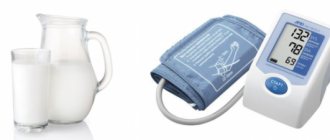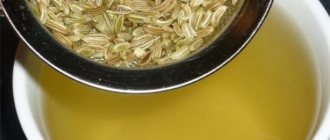In Armenia, the pomegranate symbolizes fertility and good luck, in Israel it is obligatory on the New Year's table, in Azerbaijan a holiday was dedicated to it, and in Iran they erected a monument. “King of fruits” - what do you need to know about it, how is it useful and how to choose it correctly?
Translated from Latin, granatus means “grainy,” and in Ancient Rome the pomegranate was called a grainy apple. Everything in a pomegranate is useful: every part of it contains substances and microelements that are used in cooking and medicine.
The material was checked by Evgenia Mayevskaya, Candidate of Medical Sciences, gastroenterologist and nutritionist at the GMS Clinic, teacher at the Department of Propaedeutics of Internal Medicine and Gastroenterology at Moscow State Medical University
How does pomegranate affect blood pressure?
Pomegranate is a plant of the Derbennikov family. It has fruits that are consumed in their natural form, added to some dishes and their juice used. The plant's homeland is Western Asia, where the fruits have been eaten since ancient times. Today the plant is grown in some areas of Africa, the Caucasus, Asia and the Mediterranean. Pomegranate fruits are rich in vitamin C, tannins, and sugars.
Pomegranate fruits stabilize blood pressure
The fact that pomegranate and its juice can affect blood pressure has been known for a long time. This is due to some of its substances that can reduce blood pressure. These include:
- Polyphenols that make up pomegranate pulp have the ability to destroy fats that enter the human body. They prevent the formation of cholesterol plaques on blood vessels. Accordingly, blood circulates more freely in healthy veins and arteries, and blood pressure is normal.
- Pomegranate fruits have a diuretic effect, which allows you to promptly remove excess fluid from the body, while reducing the volume of blood in the vessels. This allows the pressure to remain within normal limits.
- Pomegranate has the property of blocking the action of an enzyme that often causes spasms in blood vessels. As a result, the functioning of the cardiac organ and the vascular system as a whole improves.
Warning! All these properties can combat a slight increase in pressure. Too high indicators can be corrected with medications, and pomegranate will be useful as a preventive measure.
How does pomegranate juice affect blood pressure?
Pomegranate contains many active substances. Among them are a complex of vitamins B, E, ascorbic acid, rutin, which affects the strength and elasticity of blood vessels. Among the minerals included in the juice are iron, potassium, magnesium, selenium, and sodium. All of them significantly strengthen the heart and are of great importance for other hematopoietic organs. What is very unusual about pomegranates is that not only the pulp of the fruit has beneficial properties, but also the inside of the peel. All these parts of the pomegranate contain anthocyanins, which give the fruit a red tint, and allagotinin. These substances reduce the impact of free radicals that cause cancer.
It is worth noting that only natural freshly squeezed juice affects blood pressure.
Does pomegranate juice raise blood pressure?
Pomegranate pulp helps with cardiovascular diseases.
Those who take pomegranate for anemia should be careful. They note that with low blood pressure, it is better to reduce consumption. Many people adapt to taking juice and mix it with a tablespoon of cognac. This mixture has a gentle effect on the blood vessels, first expanding them and then gradually narrowing them.
Does pomegranate juice reduce blood pressure?
Pomegranate juice can actually lower your blood pressure a little. However, it should be taken daily. On average, it lowers blood pressure by approximately 10-20 units. Moreover, pomegranate is especially valued for its gradual, smooth decrease in pressure.
Benefits and harms
Regardless of the variety, natural pomegranate tea from Turkey (or prepared at home) has a number of beneficial properties. Let's look at the main ones.
What are the benefits of pomegranate tea and its properties?
The benefits of a tea drink with pomegranate are due to the fact that it has bile- and diuretic, anti-inflammatory, bactericidal, astringent, analgesic, tonic and antioxidant effects. This tea:
- Helps improve the immune system, especially effective during ARVI epidemics. Disinfects the oral cavity, can be used as an aid for sore throat, pharyngitis, stomatitis, etc.
- Leads to strengthening of vascular walls and lowering cholesterol levels. Helps with anemia, because... increases hemoglobin in the blood.
- Improves the functioning of the digestive system. It should be remembered that Turkish pomegranate tea with the addition of fruit peels has an astringent effect, so it can be used for diarrhea. The drink also helps cleanse the body.
- Useful in the treatment of thyroid diseases.
- Helps fight stress and nervous tension.
- Can be used to prevent cancer (especially if it contains pomegranate seeds).
- It has a beneficial effect on skin and hair, making it healthier and more beautiful.
Contraindications
Tea with pomegranate will be harmful if contraindications are neglected. Among them:
- allergy to ingredients in the composition;
- peptic ulcers, gastritis, pancreatitis;
- predisposition to constipation;
- breast-feeding.
We also recommend reading an interesting article about Anchan blue tea from Thailand and popular tea originally from Uzbekistan.
Beneficial properties of pomegranate under pressure
Pomegranate juice and pulp not only fights high blood pressure, but also prevents the development of certain diseases, which often lead to secondary hypertension. Its constant use stabilizes the condition in the following pathologies:
- atherosclerosis, in which cholesterol plaques are deposited on the walls of blood vessels;
- heart pathologies;
- kidney disease, since pomegranate juice is a diuretic;
- thyroid diseases, diabetes.
These pathologies often contribute to the development of hypertension, however, pomegranate juice and pulp can help minimize the manifestation of diseases.
Attention! Pomegranate will be useful for pregnant women, as it helps fight anemia thanks to the iron it contains.
What kind of tea is this, its history
Turks are very fond of pomegranate tea, and it is often what tourists bring from vacation for tea at home. In this regard, this type of “souvenir” products is produced in Turkey on an industrial scale.
There are several varieties of this tea. This can be a tea leaf soaked in pomegranate juice, or a powder consisting of a soluble ground tea-pomegranate mixture. You can also buy packages with dried flowers of the plant; pomegranate peels are also used.
Not everyone knows, but Türkiye has its own tea plantations. The first attempts at growing tea were made in the last years of the 19th century. However, they were not successful.
Only in the 20s of the 20th century did Ataturk pass a law on the creation of new tea plantations on the eastern coast of the Black Sea near the city of Rize. This place is the birthplace of Turkish tea today.
Events at the beginning of the 20th century became a difficult stage in the history of the country. The Turks had to give up their favorite coffee because of its high cost. It was replaced by tea grown on Turkish soil, to which local residents began to add pomegranate (its juice). This combination of ingredients made it possible to obtain an amazing drink, which is currently ranked among the national ones.
How to drink pomegranate juice for blood pressure
High blood pressure should not be treated for a long period of time with pomegranate juice. It is enough to take it for several weeks. Then you can take a week break and then resume taking it for another 2 weeks. Improvement can be expected within a month.
As a rule, juice is consumed three times a day 20 minutes before meals. It is advisable to drink it through a straw so as not to damage the enamel of your teeth. After this, you need to rinse your mouth with warm water. You should drink the juice in diluted form. It is often diluted 1:1 with water, but other types of natural juices can be added.
Contraindications
Pomegranate berries on a tree in the garden
Due to the high acidity of pomegranate juice, it, as well as the berries, should not be consumed by people with diseases of the gastrointestinal tract that are caused by high acidity (ulcers, gastritis, pancreatitis). Pomegranate has astringent properties, so it should be taken with caution by people suffering from constipation.
In some people, excessive consumption of pomegranate may cause heartburn and irritation of the mucous membranes of the inner surface of the stomach. Children under one year of age should not drink juice or eat red grains.
Note. The acidic environment of juice negatively affects tooth enamel, so it is better to drink the drink through a straw.
Recipes with pomegranate and pomegranate juice for blood pressure
The juice should be consumed through a straw.
It is necessary to choose the right pomegranate fruit to prepare high-quality juice. It should be elastic, without visible damage. The color of ripe pomegranate varies from all shades of yellow to rich burgundy. The ripeness of the pomegranate is also indicated by the grains emerging through the peel.
At home, juice can be prepared using a juicer, blender, or simply mash the grains with a wooden mortar.
Important! It should be noted that beneficial elements are retained in high concentration during the first 15 minutes after preparing the drink, then their amount decreases by an average of 30%.
In addition to natural freshly squeezed juice, a number of other recipes can be used for hypertension. For treatment you can use one of them:
- Half a pomegranate fruit should be poured with a glass of boiling water and left under a closed lid for about an hour. For several weeks, the infusion should be taken one spoon at a time before meals.
- Place dry pomegranate peels into an enamel container and add a glass of water. Place in a water bath for 30 minutes, then strain and dilute with 100 g of water. Take the decoction twice a day. This decoction will help with diseases of the kidneys, liver, and joints.
- For half a liter of water you should take about 30 g of crushed peel, pour boiling water over it (you can use it in a thermos). Brew and drink like tea, about 3 glasses a day.
- A spoonful of pomegranate juice is diluted with the same amount of natural lemon juice, and a spoonful of honey is added to the mixture. Should be taken 4-5 times before meals. The course is 2 weeks, then a 10-day break. After that, a repeat course again. The mixture perfectly cleanses blood vessels and relieves spasms.
- The thin internal partitions of pomegranate help relieve nervous tension, have a positive effect on sleep, and help cope with the effects of stress. The partitions are dried and crushed. Brew one spoon of raw material with 2 cups of boiling water. You can take it within 20 minutes. Drink instead of tea. Course – 2 weeks.
Pomegranate decoction also has beneficial properties.
In addition to the juice and peel, the pulp is also useful. To enrich the blood composition and strengthen the cardiovascular and nervous systems, you need to consume at least 100 g of pomegranate pulp.
Research by scientists on the effect of pomegranate on blood pressure
The properties of pomegranate and its juice have been studied for a long time. Today it has been established that the fetus actually affects blood pressure, the vascular and nervous systems of humans. Previously, a kind of experiment was conducted using two groups of people with a history of hypertension. The first group regularly drank pomegranate juice throughout the experiment, 300 g per day. The other group drank only water. At the same time, control pressure measurements were taken every week. Hypertensive patients from the first group showed normal results over time. People from the second group had high blood pressure, especially after physical activity.
Indications
Benefits of pomegranate
Eating pomegranate is beneficial for all people. Due to the high content of vitamins and microelements, there is an overall positive effect on the body.
Juice or fresh berries are especially valuable for people with diseases of the cardiovascular system:
- hypertension;
- anemia (due to low iron concentration);
- atherosclerosis.
Regular consumption of pomegranate for therapeutic purposes is indicated for low immunity, diarrhea, fatigue, poor sleep and general exhaustion of the body.











